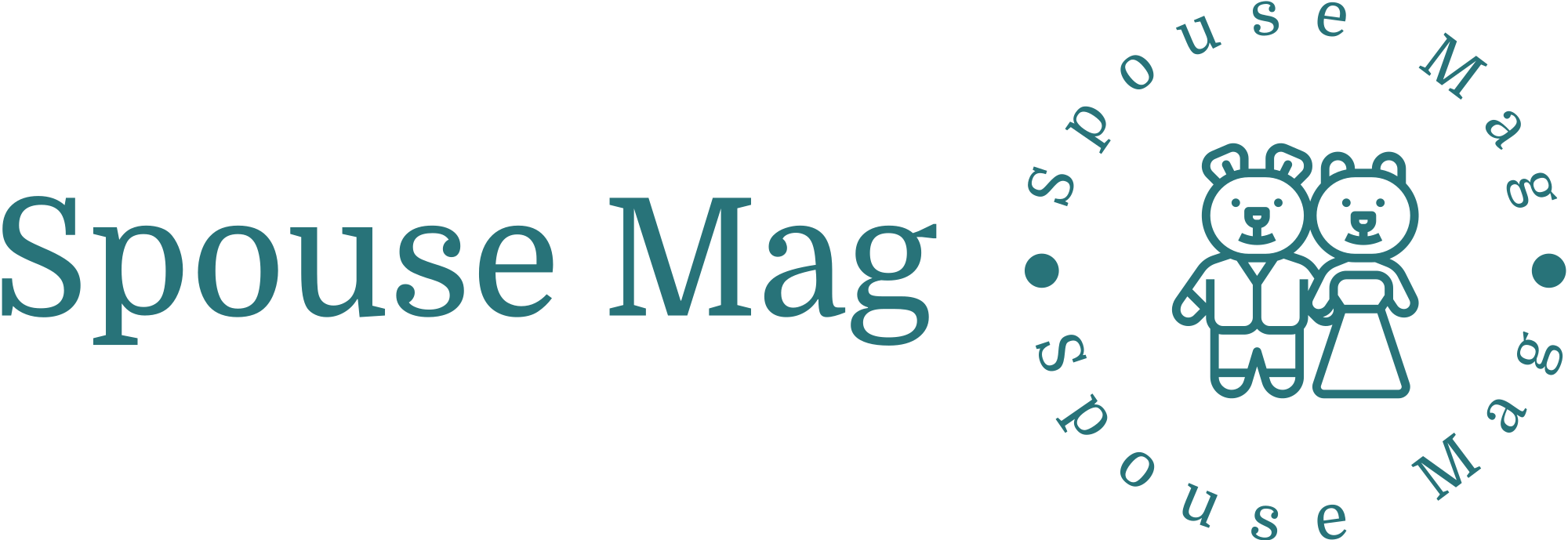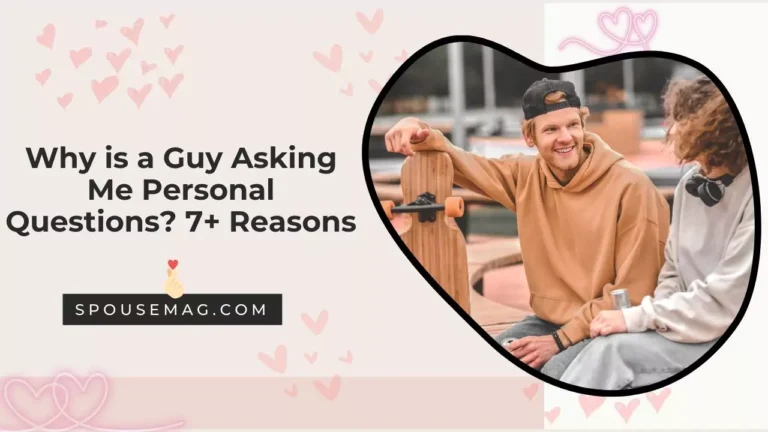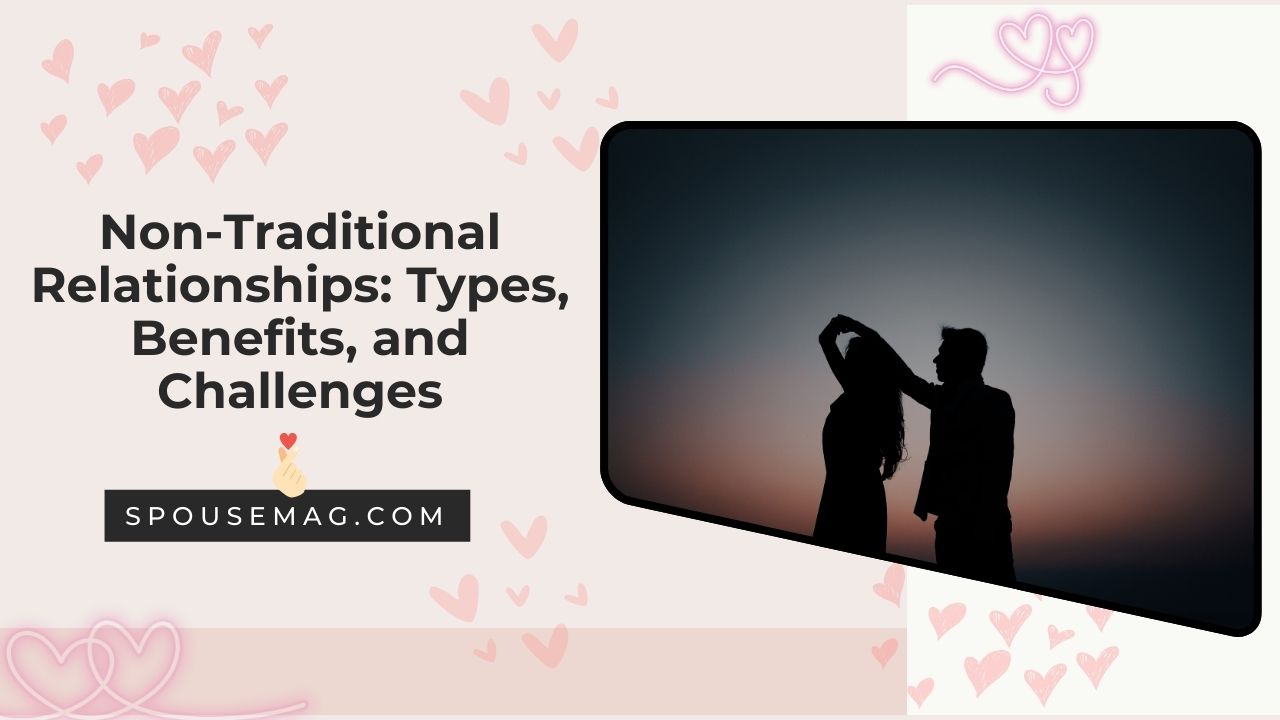
Non-traditional relationships are connections between people who don’t follow the typical dating, marriage, or family patterns.
These relationships can include things like open relationships, polyamory, or same-sex partnerships. People in non-traditional relationships often create their own rules and boundaries, focusing on what works best for them rather than following societal norms.
These unique connections are built on trust, communication, and understanding. Now, let’s explore non-traditional relationships, their types, benefits, and more!
Key Takeaways
- Non-traditional relationships are diverse and go beyond typical dating, marriage, or family patterns.
- People choose non-traditional relationships for personal freedom, exploration, and dissatisfaction with traditional norms.
- Types of non-traditional relationships include polyamory, swinging, open relationships, relationship anarchy, and non-romantic partnerships.
- Building trust, communication, and understanding is essential for successful non-traditional relationships.
- Society’s acceptance of non-traditional relationships is growing, but challenges and stigmas still exist.
Types of Non-Traditional Relationships
The world of non-traditional relationships is diverse and evolving. Here are some of the most common types:
1. Ethical Non-Monogamy (ENM)
This umbrella term contains relationships where partners agree to have romantic or sexual relationships with others outside the primary partnership. Here are some specific forms of ENM:
- Polyamory: Involves having loving, committed relationships with multiple partners, with everyone’s knowledge and consent.
- Swinging: Primarily focused on casual sexual encounters with other couples, often with the knowledge and consent of all partners involved.
- Open Relationships: Maintains a primary relationship while allowing for emotional or sexual connections outside the partnership.
2. Relationship Anarchy (RA)
Relationship Anarchy challenges conventional notions of love and partnership by rejecting hierarchical structures and predefined roles.
Instead, it champions the idea of forging authentic connections based on mutual respect and individual autonomy. In a world where labels and expectations reign supreme, RA offers a refreshing alternative – one where relationships are defined solely by the individuals involved, free from societal constraints.
The definition of Relationship Anarchy according to a Reddit user:
4. Non-Romantic Relationships
Who says relationships must be romantic or sexual to be meaningful? Chosen family, platonic friendships, and other non-romantic partnerships play a vital role in many people’s lives.
These connections, rooted in companionship, loyalty, and shared experiences, offer a sense of belonging and support that transcends traditional boundaries.
5. Other Variations
Age-gap relationships, living apart together (LAT), and financially independent partnerships are just a few examples of the diverse array of non-traditional relationships that exist.
Each of these arrangements challenges conventional norms in its unique way. They highlight the endless possibilities for building meaningful connections outside the confines of tradition.
Why People Pursue Non-Traditional Relationships?
People pursue non-traditional relationships for various reasons, including the desire for personal freedom, exploration of alternative lifestyles, or dissatisfaction with conventional norms.
Some seek polyamorous or open relationships to experience emotional intimacy with multiple partners.
Others engage in unconventional arrangements to fulfill specific needs or preferences that traditional relationships don’t address. Non-monogamous relationships also challenge societal norms and offer opportunities for growth, self-discovery, and unconventional forms of love.
Additionally, people pursue non-traditional relationships due to philosophical beliefs, cultural influences, or simply because they find fulfillment and happiness in alternative relationship structures.
Ultimately, the motivations behind seeking non-traditional relationships are as diverse as the individuals involved, reflecting a spectrum of desires, values, and experiences.
5 Individuals Share Insights: Non-Traditional Relationships
We spoke to 5 Americans from various professions and locations to understand their perspectives on non-traditional relationships. Here’s what they shared:
1. Ryan – Software Engineer in San Francisco, California
Ryan, a 32-year-old software engineer from San Francisco, California, provided his perspective on non-traditional relationships. “In today’s diverse society,” he began, “people are redefining what relationships mean to them. It’s not just about monogamy anymore; it’s about finding a dynamic that works for each individual.”
He continued, “As someone immersed in the tech industry, I see how non-traditional relationships are becoming more accepted and even celebrated. It’s about embracing different forms of love and connection, whether it’s polyamory, open relationships, or other arrangements.”
2. Emily – Marketing Manager in New York City, New York
Emily, a 28-year-old marketing manager based in New York City, shared her insights into non-traditional relationships. “In the fast-paced urban environment,” she stated, “people are exploring alternative relationship structures that prioritize personal fulfillment and autonomy.”
“As someone navigating the bustling New York dating scene,” Emily elaborated, “I’ve encountered individuals seeking non-traditional arrangements that allow for flexibility and freedom while still enabling meaningful connections. It’s about challenging societal norms and embracing authenticity.”
3. Liam – Freelance Writer in Portland, Oregon
Liam, a 35-year-old freelance writer residing in Portland, Oregon, offered his perspective on the topic. “As society evolves,” he expressed, “so do our perceptions of relationships. Non-traditional arrangements provide an opportunity for individuals to customize their love lives according to their needs and desires.”
“As someone immersed in the progressive culture of Portland,” Liam added, “I’ve observed a growing acceptance of non-monogamous relationships, with many people exploring ethical non-monogamy, polyamory, and other unconventional dynamics.”
4. Sophia – Teacher in Austin, Texas
Sophia, a 31-year-old teacher in Austin, Texas, shared her observations on non-traditional relationships. “In the vibrant city of Austin,” she remarked, “there’s a spirit of openness and acceptance that extends to all aspects of life, including relationships.”
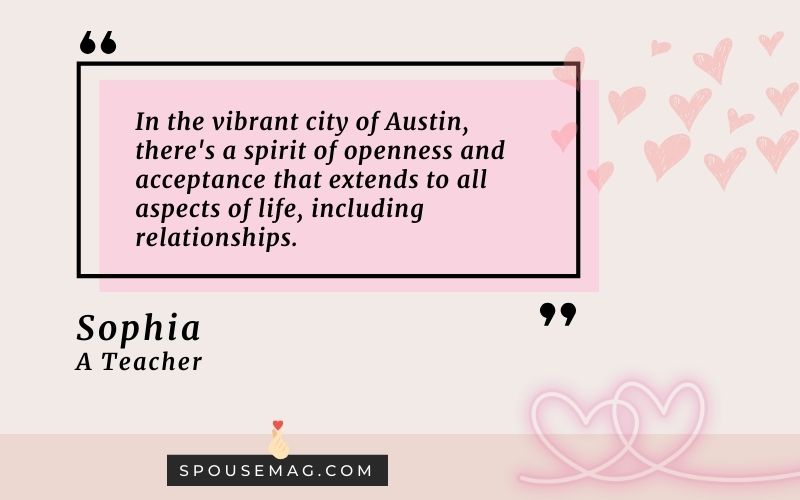
“As someone passionate about education and social justice,” Sophia elaborated, “I’ve witnessed how non-traditional relationship structures challenge traditional power dynamics and promote equality and respect among partners.”
5. Ethan – Financial Analyst in Chicago, Illinois
Ethan, a 29-year-old financial analyst based in Chicago, Illinois, provided his insights into non-traditional relationships. “In today’s modern world,” he stated, “people are embracing diversity and individuality in all aspects of life, including their romantic relationships.”
“As someone navigating the competitive business environment of Chicago,” Ethan added, “I’ve seen how non-traditional relationship models, such as consensual non-monogamy and relationship anarchy, are gaining traction among forward-thinking individuals seeking genuine connection and fulfillment.”
3 Non-Traditional Love Stories
Here are three personal experiences of people with non-traditional relationships:
1. Polyamory Power Couple – Sarah (32) & David (34)
“David and I knew we wanted a relationship that nurtured individual growth and didn’t limit love. Polyamory felt right. It took a lot of communication – setting boundaries, respecting each other’s needs, and being upfront with potential partners. Jealousy flared initially, but honest conversations and celebrating each other’s connections helped. Society’s judgment is tough. We face stares from guys and girls and sometimes exclusion. But our chosen family, built on honesty and love, makes it worth it.”
2. Living Apart Together (LAT) – Emily (28) & Liam (30)
“Liam’s career took him across the country, and long-distance wasn’t ideal. We explored our options and decided to try living apart together (LAT). We cherish our weekend visits, video calls at night, and shared online calendars. It strengthens our communication and keeps the spark alive. The downside? Missing each other daily and the constant logistics. Socially, explaining our setup gets tiring. But the freedom and independence it offers outweigh the challenges.”
3. Solo Polyamory – Kai (40)
“I thrive on deep connections, but marriage or cohabitation isn’t for me. Solo polyamory allows me to have fulfilling romantic and sexual relationships without the pressure of commitment. It takes emotional intelligence to manage boundaries and avoid entanglement. Family gatherings are tricky – navigating “plus ones” and explaining my relationship style. But the freedom to choose love on my terms is incredibly liberating. It’s about connection, not possession.”
Conclusion
In summary, non-traditional relationships encompass a vast and diverse landscape of possibilities, challenging conventional notions of love, partnership, and commitment.
Whether you’re drawn to polyamory, swinging, or relationship anarchy, the key lies in embracing authenticity, communication, and mutual respect. As society continues to evolve, may we approach all relationships with an open mind and a compassionate heart, honoring the myriad ways love can manifest in our lives.
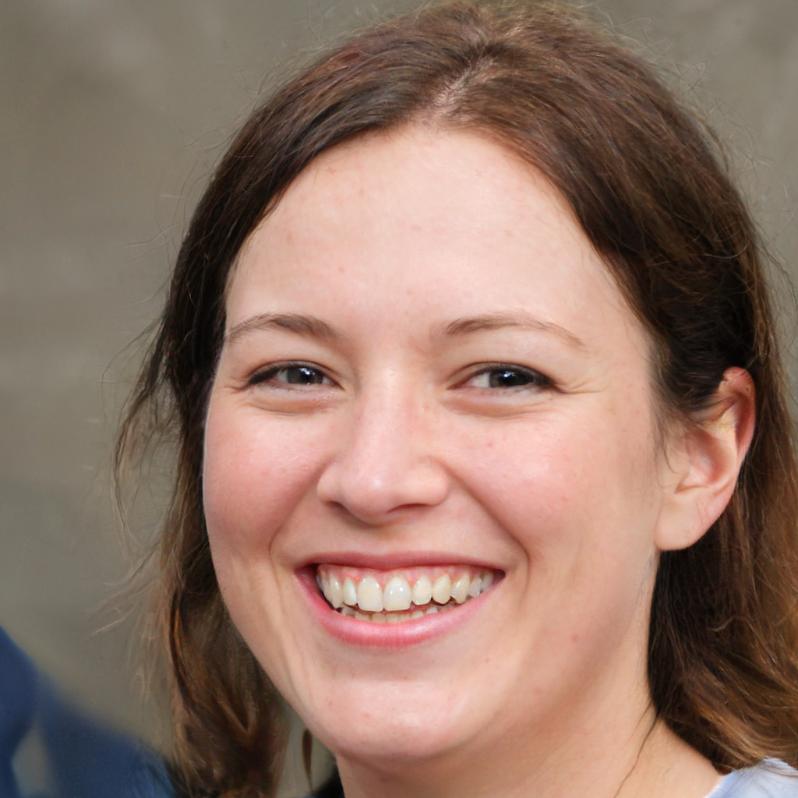
As a married wife, founder, and editor of SpouseMag.com – these guides are based on my own personal experiences, observations, research and insights. I am transparent about being inspired by the life and work of the two greatest experts in the relationship space – Dr. John and Julia Gottman, and Harville and Helen. They two are some of the strongest couples, researchers, authors, and counselors when it comes to marriage and relationships. My advice and guides are based on my insights and research, and they are not an alternative to professional advice.
